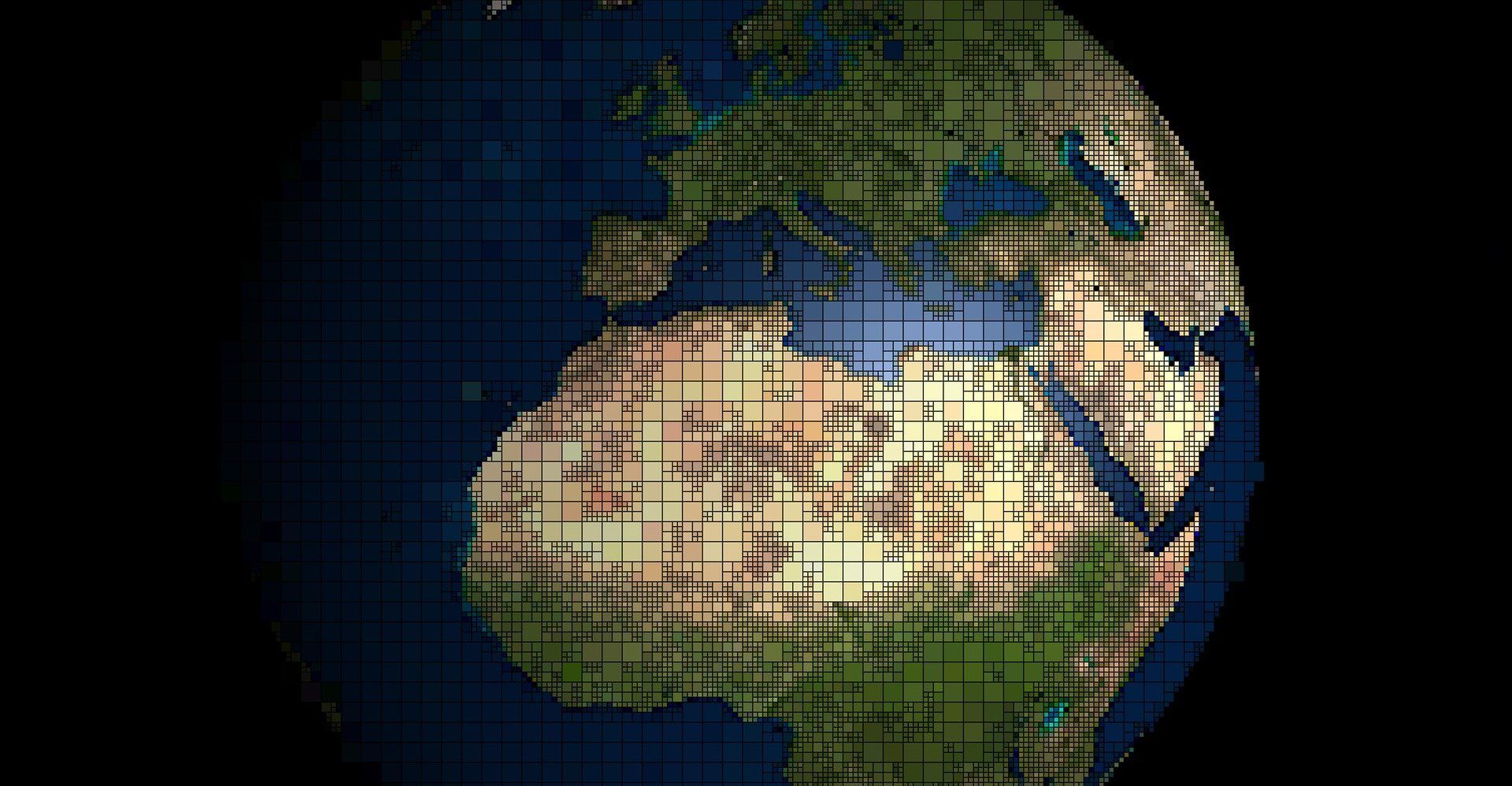Have you ever wondered what informs our views on topics such as Love, Human Rights, Racism, Sex, Marriage, Education, Abortion and Forgiveness? Why we are hotly divided over these issues? Why we are emotionally invested (in varying degrees) in them and Why we feel the need to speak and act out our views? The answers to these questions are not as plain as black and white. They are rather complex and complicated, motions that would form the basis of a life-long enquiry even for the most curious and inquisitive minds.
Even though it would be almost impossible to exhaustively explore all the factors that influence our views on we can make use of a helpful tool called a worldview; helpful in the sense that it puts together all the things that informs our perspective into context in a compact and comprehensible form. A worldview represents our most fundamental beliefs and assumptions about humanity/ourselves and the universe we live in. In other words, it is like a lens that affects what we see and how we see it, thus, shaping our experiences of the world around us.
In essence, a worldview is a given set of answers to a specific set of questions that influences the way we see and understand the world. The answers to these questions are interwoven together to form a story-like narrative of the world. Just as every novel or movie has a plot that guides the main story, every worldview consists of components that tells us about the ‘big picture’ of our reality. These components are explored in six broad questions that touch on the four areas of Origin, Meaning, Morality, and Destiny (OMMD).
Origin
The starting point of every worldview deals with the question of origin- Where do we come from? This question moves us to think about what we, and the universe owe our existence to. For example, are we according to the words of late Harvard paleontologist George Gaylord Simpson, “the result of a purposeless and natural process that did not have [us] in mind”? or the result of a purposeful process initiated by a creator or intelligent mind? It’s a fundamental question of life that we all ought to ask ourselves as it goes a long way in putting the rest of our worldview into context.
Meaning
Following the answers we give to our origins is the worldview component of meaning which delves into two questions: i) What does it mean to be human? And ii) Why are we here? The first makes us ponder on our nature and the features that distinguishes us from other life forms. Also, it pushes us to contemplate the extent to which humans are of intrinsic value and the grounds upon which those values stand.
It is not enough to merely know how we came to exist. All of us would be craving to know the purpose for why we are here on this planet thus, necessitating the second question─ why are we here? This central question directs us to define the purpose for which we live or as they say, our ‘raison d’être’─ the most important reason or purpose for our existence.
Morality
Every worldview has to answer the question on morality. We all have a moral conscience that regulates our behaviour and influences our evaluation of the actions of our fellow humans in terms of ‘ought to’ and ‘ought not’ categories. The question that rises from this aspect of our reality is ‘how do we define right from wrong?’ Another way through which we could pose the question is to ask─ “On what grounds do we justify something to be morally good or evil?”
Related to this question is another query that a worldview must answer. How do we understand the problem/persistence of evil in the world? Not only do we have a sense of morality as humans, we also to a very large extent, express a common concern/awareness of the problem of evil, pain and suffering in our world however we choose to define those terms. This question provokes us to inquire into the ultimate source of this problem and ultimate solution to it.
Destiny
Regardless of where we came from, what we held to be most meaningful in our life, and how we lived out our moral values, a worldview has to answer the question of our ultimate destiny referring here to what follows a person’s physical death. Anselm, former Archbishop of Canterbury, once said, “Nothing is more certain than death, nothing more uncertain than the hour of death.” Death is not a pleasant topic, but its reality raises a fundamental question for every worldview to answer─ Is death the end? And the end of everything, do we just inconsequentially phase out of existence or is there another life beyond the grave? Some believe it’s the end, some believe in an afterlife in varying forms, and some believe in reincarnation; all of which has important ramifications for the worldview
The Components of a Worldview
| Origin | 1. Where do we come from? |
| Meaning | 2. What does it mean to be human? / What is the significance of being a human? 3. Why are we here? |
| Morality | 4. How do we define right from wrong? 5. How do we explain the problem/ persistence of evil? |
| Destiny | 6. Is death the end? |
To lay it out in a narrative form, a worldview seeks to tell the story of where the universe and humans come from; the significance (or lack thereof) of human beings; the purpose for living; how we understand the moral categories of right and wrong; why there is so much pain and suffering; what the solution is; and if there lies something at the end of it all.
Each one of us holds a worldview consciously and/or subconsciously. Not only do worldviews shape how we view the world, it also influences the way we respond to the world around us through our actions; through the values we hold dearly; through what we prioritize in life; through the causes we are most passionate about and so much more.
Worldviews operate both at the individual and societal levels. Rarely will two people have exactly the same worldview, but they may share a common primary worldview. Moreover, within any society, certain worldview types will be represented more prominently than others and will therefore exert greater influence on the culture of that society. There are several worldviews permeating our societies today but the dominant ones in the western societies are the naturalistic and Christian worldviews. Both offering very different answers to life’s biggest questions.
The naturalistic worldview is increasingly popular in western societies and championed by famed atheist like Richard Dawkins. This worldview claims that the universe came into being by coincidence. Homo sapiens are no more than the product of a blind and undirected process that didn’t have them in mind, therefore they have no transcendent significance or purpose aside from the meaning we choose to give it. In this worldview the human race is merely passing on genes in a world that possess no objective good or evil, ending with a point of indifferent death.
In a Christian theistic worldview, the universe and all life forms were intentionally created and designed by God. Every human has an invaluable worth as they are uniquely created in God’s Image and created for a special purpose. This worldview looks at God as the standard for distinguishing between good and evil, while being aware of the persistence of evil as a result of men-kind’s shortcomings. It acknowledges that the ultimate solution lies in reconnecting with God and following His will; and ultimately declaring that life doesn’t end at the grave.
With regards to these worldviews, the debate should not be surrounded on which sounds nicer or more appealing. It doesn’t matter! Something might sound nice and rosy and still be totally false. However, regardless of which worldviews we hold, or which dominates our societies, each one of us should ask ourselves three questions with the last being the most important;
- What is your worldview?
- How did you get it?
- Is it true?
I’ve always held a Christian worldview as far as I can remember, but I recall the day I had to ask myself the biggest question of my life. Is it true? I followed the evidence wherever it took me and pursued the truth open-mindedly and relentlessly. Well, I ended up with where I am today, a Christian, because of the evidence not in spite of it.
Former atheist and award winning cold-case homicidal detective, J. Warner Wallace, said this about his journey after transitioning from an atheistic worldview into a Christian worldview:
“I’m not a Christian because it “works” for me. I had a life prior to Christianity that seemed to be working just fine, and my life as a Christian hasn’t always been easy. I’m a Christian because it is true. I’m a Christian because I want to live in a way that reflects the truth. I’m a Christian because my high regard for the truth leaves me no alternative.”
I hope to delve deeper into each of the components of a worldview in future articles. But for now, I invite you to take the time to ask yourself these three questions.



